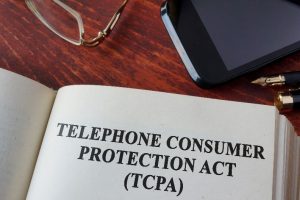
On April 12, 2019, an Oregon federal jury returned a Friday evening verdict in a Telephone Consumer Protection Act (TCPA) class action that could put the defendant on the hook for $925 million in damages.
The TCPA makes it unlawful to make a telephone call to any cell phone or residential telephone line using an artificial or prerecorded voice without the prior express consent of the called party. It provides a private right of action that subjects violators to actual damages or $500 for each violation, whichever is greater. A court can award treble damages for any violation it determines to be willful or knowing.
The case of Wakefield v. ViSalus, Inc. started back in 2015 when plaintiff Lori Wakefield filed a class action complaint in the U.S. District Court for the District of Oregon against ViSalus, Inc. ViSalus is a multilevel marketing company that markets weight loss products, dietary supplements, and energy drinks. Ms. Wakefield alleged that ViSalus engaged in a marketing campaign that consisted of calling phone numbers that were on the Do Not Call Registry and placing robocalls initiated with a prerecorded message, both without prior express consent. Eventually, Ms. Wakefield sought certification of three classes, a “Do Not Call Class,” a “Robocall Class,” and an “Oregon-Stop-Calling Class” based on alleged violations of state law.
In June of 2017, the Court certified the Robocall Class but denied certification of the Do Not Call Class and the Oregon-Stop-Calling Class. With respect to the Do Not Call Class, the Court determined that Ms. Wakefield had not provided reliable evidence to show the number of potential class members. With respect to the Oregon-Stop-Calling Class, the Court ruled that the claim did not involve common evidence across class members. Therefore, only the claims with respect to the Robocall Class moved to trial.
After a 3-day trial that began on April 10, 2019, the jury returned its verdict. The jury found that Ms. Wakefield proved that ViSalus made 4 calls to her in violation of the TCPA and 1,850,436 calls to class members in violation of the TCPA. When asked to distinguish on the verdict sheet between how many of those calls were made to cell phones and how many were made to residential telephone lines, however, the jury wrote, “We cannot tell.” Nor was the jury tasked with making a determination on damages. Nevertheless, the number of calls and the $500 statutory damages per violation puts potential damages over $925 million, at minimum.
The verdict, however, is likely just the beginning of the next chapter in the case. Defense counsel is likely to seize on the jury’s inability to distinguish between calls to cell phones and calls to residential landlines. While the TCPA prohibits prerecorded voice calls to both, it does not prohibit prerecorded voice calls to business landlines. Therefore, the jury’s statement of “We cannot tell” may give defense counsel an opening to argue that the jury based its verdict on mere speculation. In any event, given the amount of damages at stake, an appeal appears inevitable.


